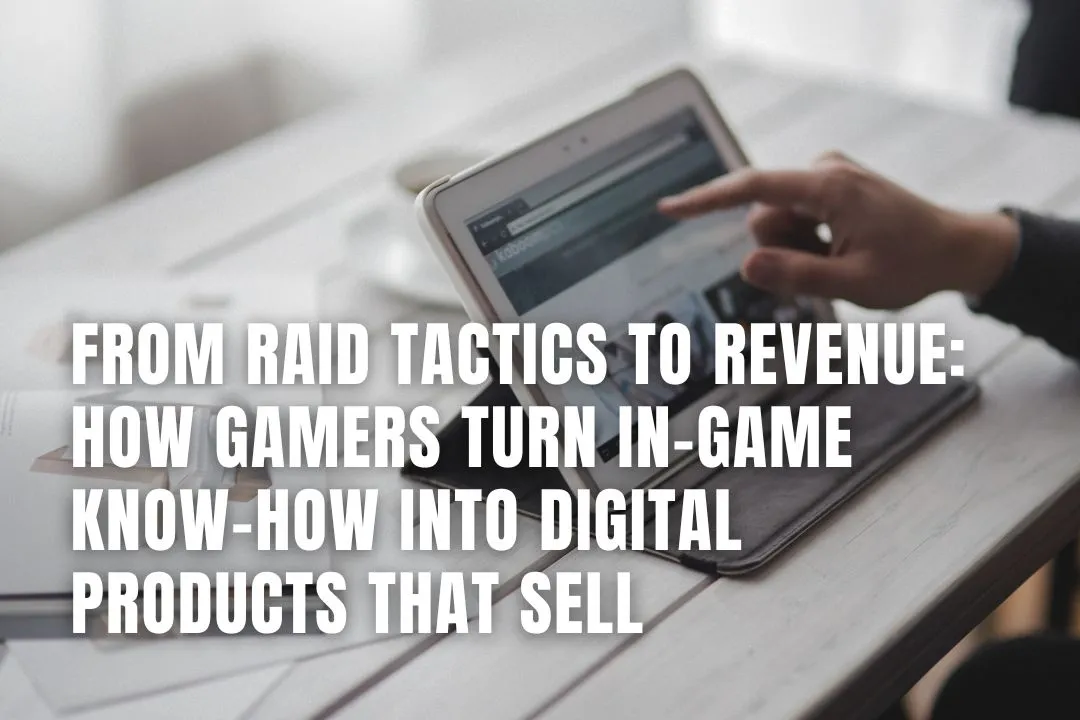
A decade ago, explaining to your family that you could earn real money from video-game strategies felt like science fiction. Today, top streamers, guide writers, and mod creators prove there is solid demand for well-packaged knowledge that helps players win faster or look cooler on screen. If you’ve ever spent hours perfecting a PvP build, speed-running an indie hit, or mastering obscure raid mechanics such as Manaforge Omega, you already hold valuable expertise. The next step is turning that expertise into a product someone will happily buy, without needing a publisher, a huge budget, or celebrity status.
The games today have become bigger and more complicated than before. Patches are released every week, meta changes occur overnight, and active players simply do not have the time to browse through random threads in the forums. They’re willing to trade a few dollars or more for concise answers that save hours of trial and error. According to Forbes research on the creator economy, micro-products like specialised e-books and niche video courses form one of the fastest-growing revenue streams for online entrepreneurs. Games fit that model perfectly: problems are clear (“How do I farm gold efficiently?”) and solutions can be delivered digitally at near-zero distribution cost.
Before you write a single sentence or hit “record,” decide how your knowledge translates best. Are you great at clear, step-by-step writing? A PDF guide or Notion template might be ideal. Do you explain concepts better out loud? Short video modules or a voice-over slideshow could resonate more. The magic formula is matching your natural communication style with a format that customers can easily consume, either between matches or during a loading screen. Popular micro-product options include:
Remember, your first version doesn’t need 4K graphics or professional narration clarity, but beats polish on day one.
Many creators craft an entire 100-page tome, only to find nobody wants it. Borrow a lean-startup trick: float the idea first. Post a one-page outline in a subreddit, Discord, or guild forum and ask, “Would this help?” Track reactions, not just likes but genuine follow-up questions. If players request early access or ask about the price, you have the green light. Entrepreneur Magazine notes that pre-selling even a handful of copies confirms both need and willingness to pay, cutting weeks of guesswork.
You don’t need a million followers to sell a hundred guides, often; fifty engaged readers in a niche community suffice. Share development snippets: a screenshot of your DPS chart, a 30-second tip reel, a behind-the-scenes peek at your spreadsheet logic. Each post seeds trust and reminds potential buyers you’re solving a real pain point. Consistency matters more than viral spikes; one useful tip every two days keeps you visible without overwhelming your schedule.
Creators often undervalue digital goods. A specialised guide that saves players ten hours is worth more than a cup of coffee. Benchmark similar products: if speed-running routes sell for $10 and broad beginner guides sell for $5, a focused raid-mechanic PDF could land comfortably at $7-8. Offer a launch discount for first adopters, not to devalue your work, but to reward early trust and gather testimonials.
Use established platforms: Gumroad, Ko-fi, or itch.io that handle payment, file delivery, and VAT headaches. Put a well-formatted PDF, provide a product description, and put free updates, at least one major patch. This guarantee reduces the anxiety of buying and differentiates you from the fly-by-night sellers who disappear after getting paid. After launch, gather feedback quickly. Did readers ask for clearer diagrams? Add them in version 1.1 and email buyers an updated file. That small gesture locks in loyalty and sparks word-of-mouth referrals stronger than any ad spend.
Even the most prepared creators stumble. Below, you’ll find three usual snags and straightforward solutions.
Back to narrative: treat each hiccup as an upgrade opportunity; your product gets sharper, and customers feel heard.
Once sales tick steadily, decide whether to broaden (cover another class, map, or game) or deepen (add advanced modules, one-on-one coaching). Both paths are viable; your choice ultimately depends on your passion and available bandwidth. Expanding too widely and too fast can dilute expertise, while deep dives sometimes limit the audience size. Test with a micro-survey to existing buyers; let demand steer the roadmap.
Turning gaming strategies into profitable digital products isn’t a lottery; it’s a craft. Pinpoint a pain point, package your unique solution, validate with real players, and iterate. Start small, maybe a ten-page guide on a niche boss fight: learn the ropes, and roll earnings into your next release. By so doing, you are turning years of experience (learned in game) into revenue. You are demonstrating that play and profit can and should be compatible, that they can be brought together by focusing on what you do know with the clarity and humility of admitting what you do not know, as well as a little bit of an entrepreneurial spirit.